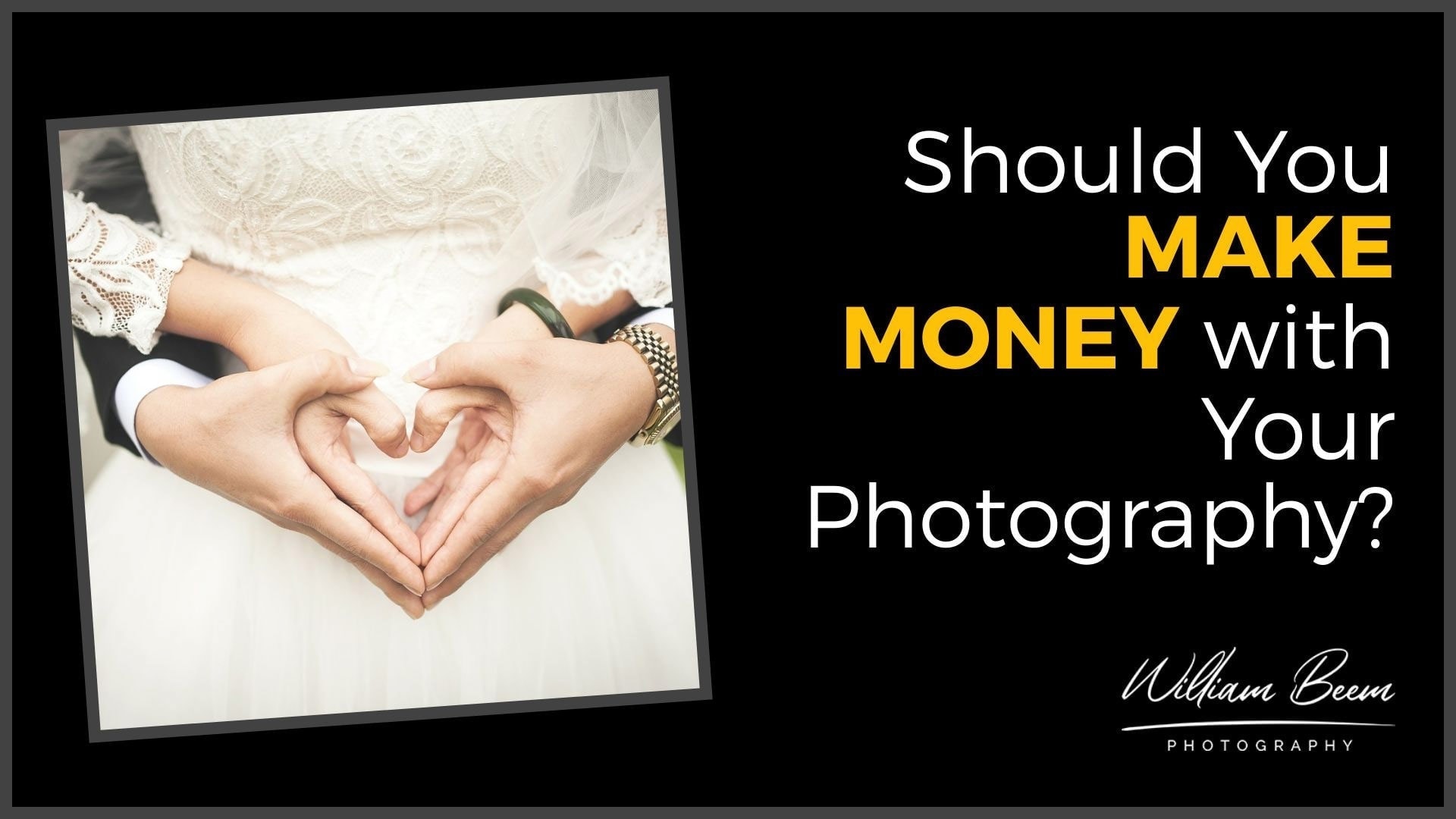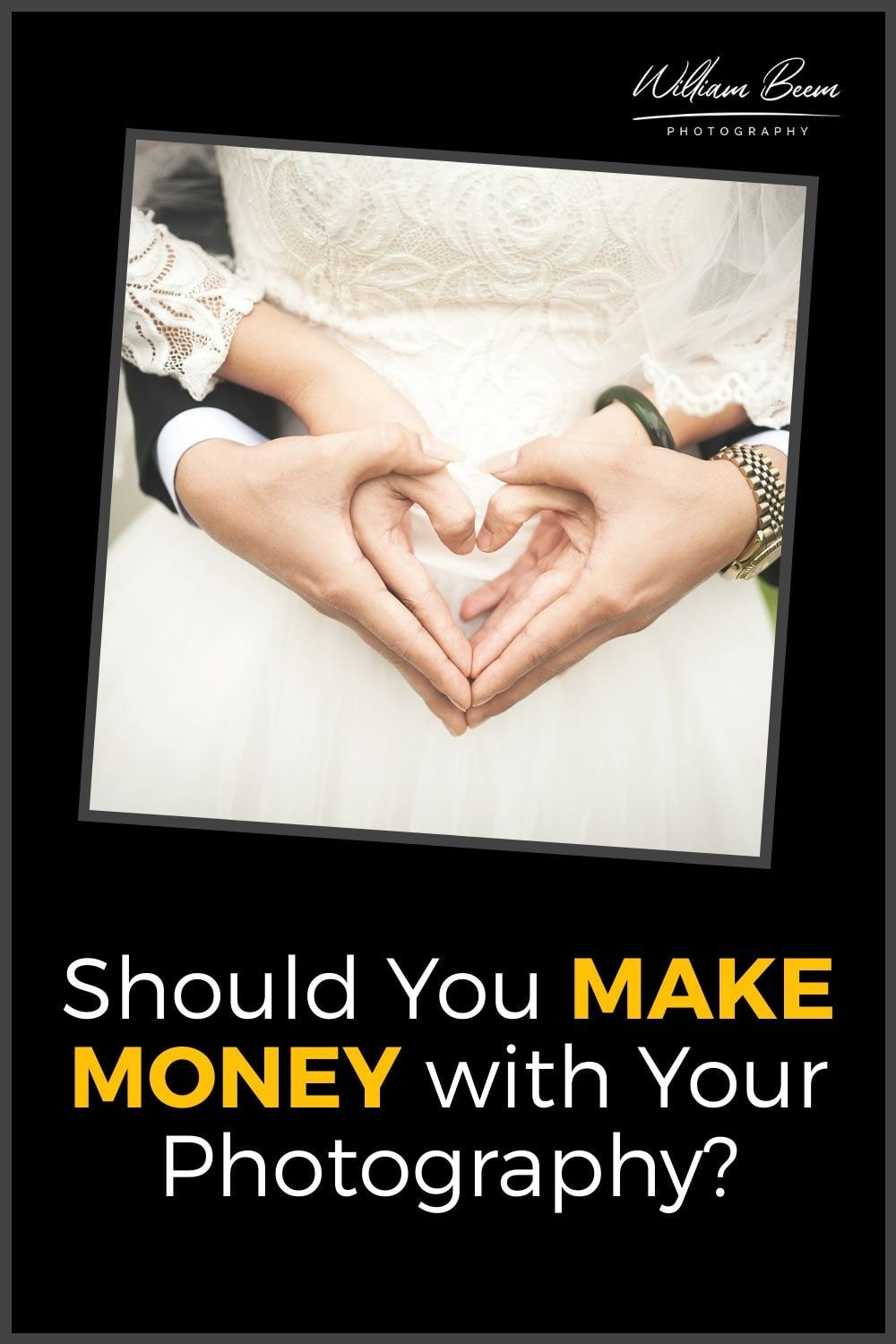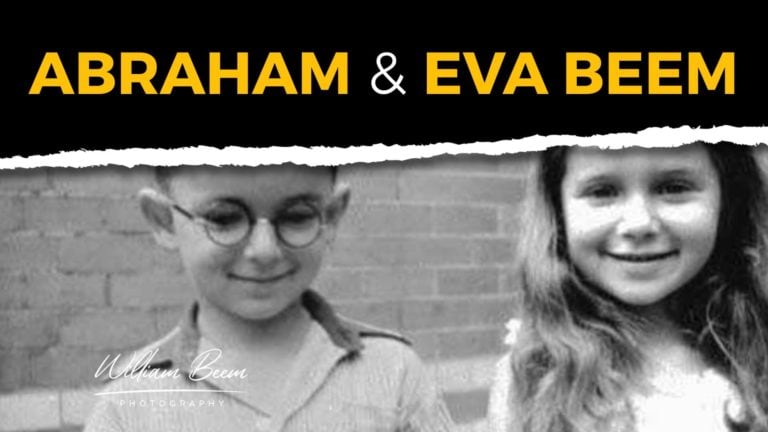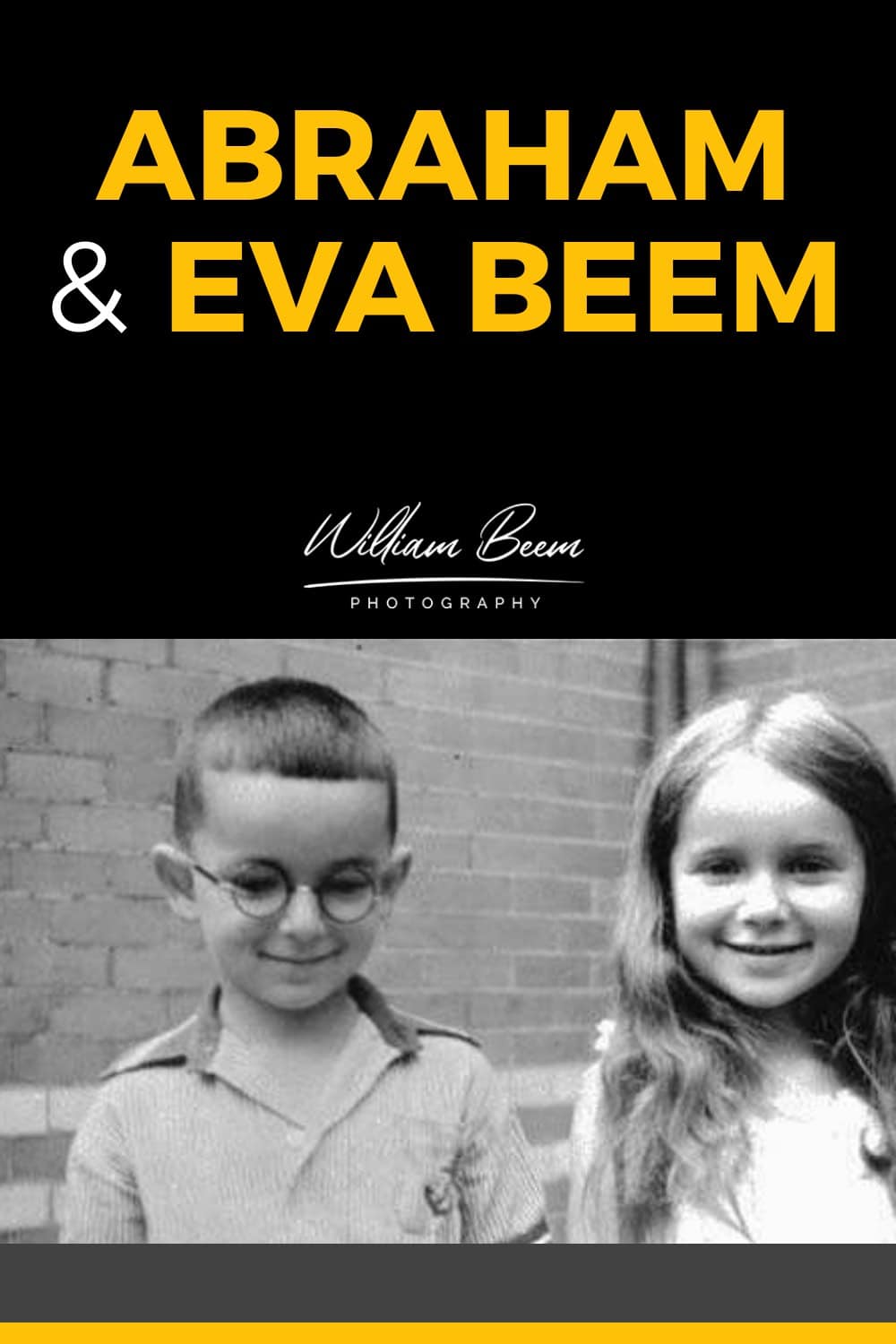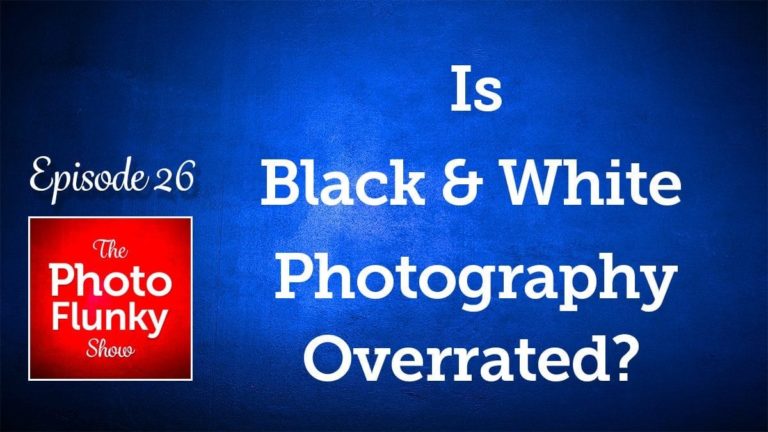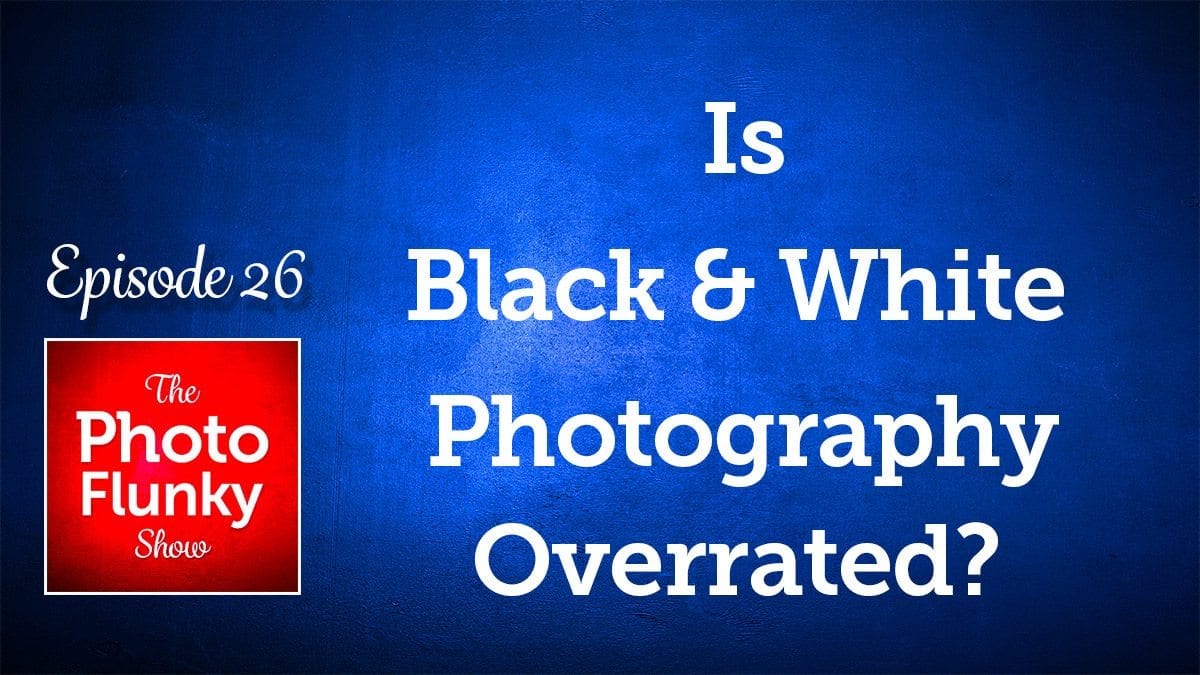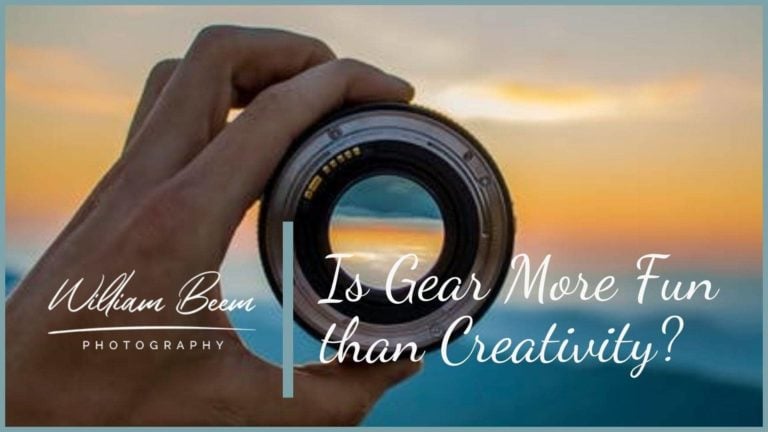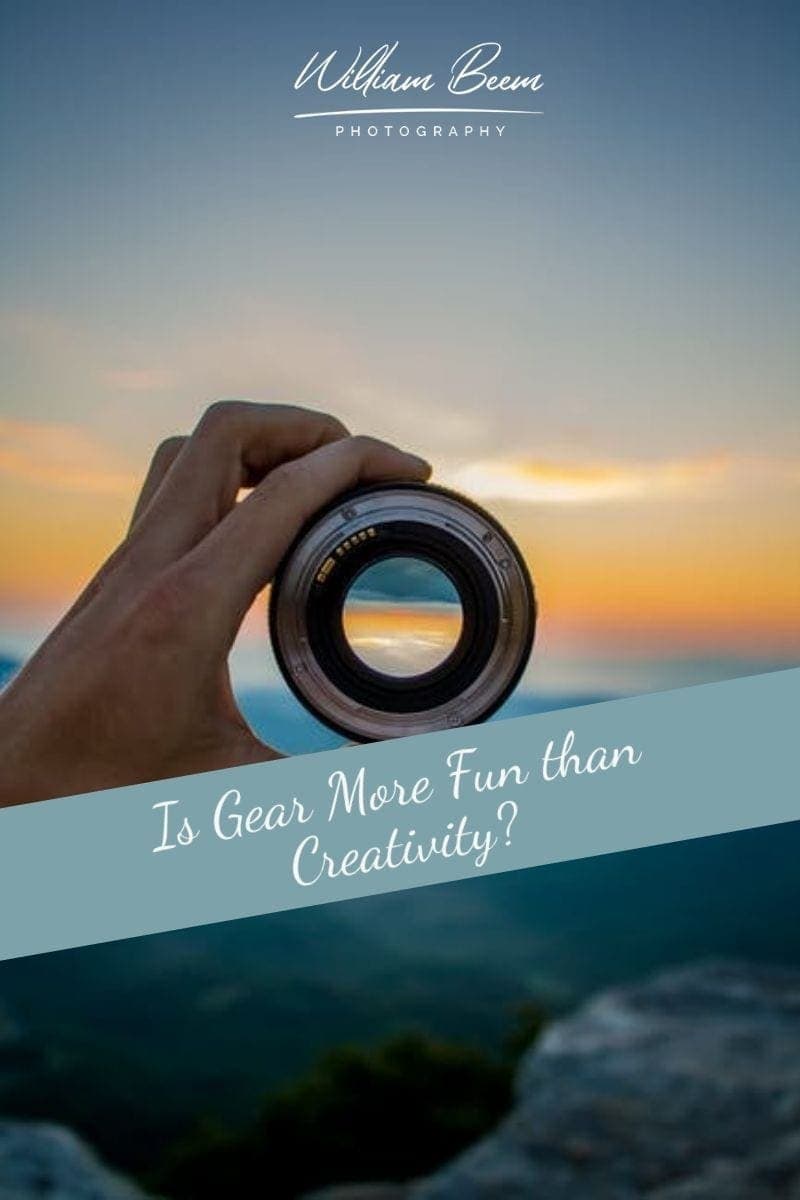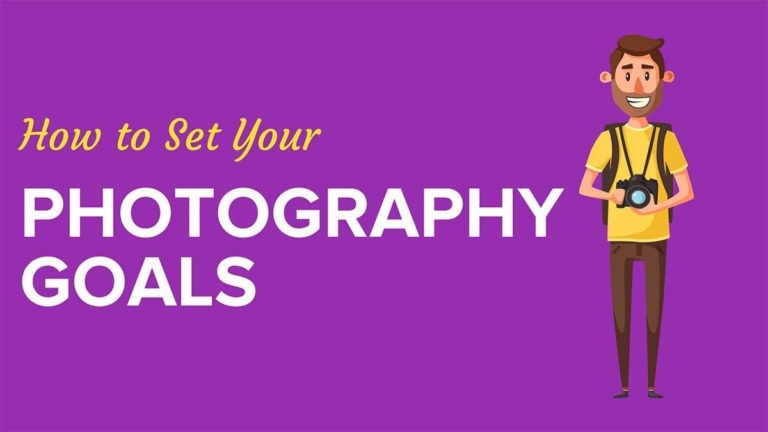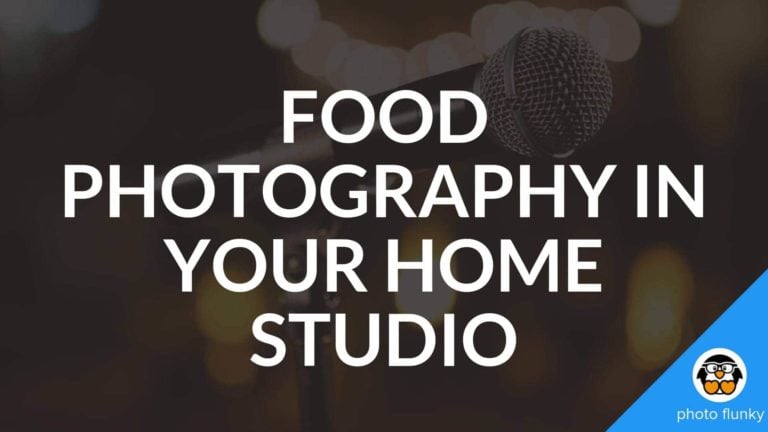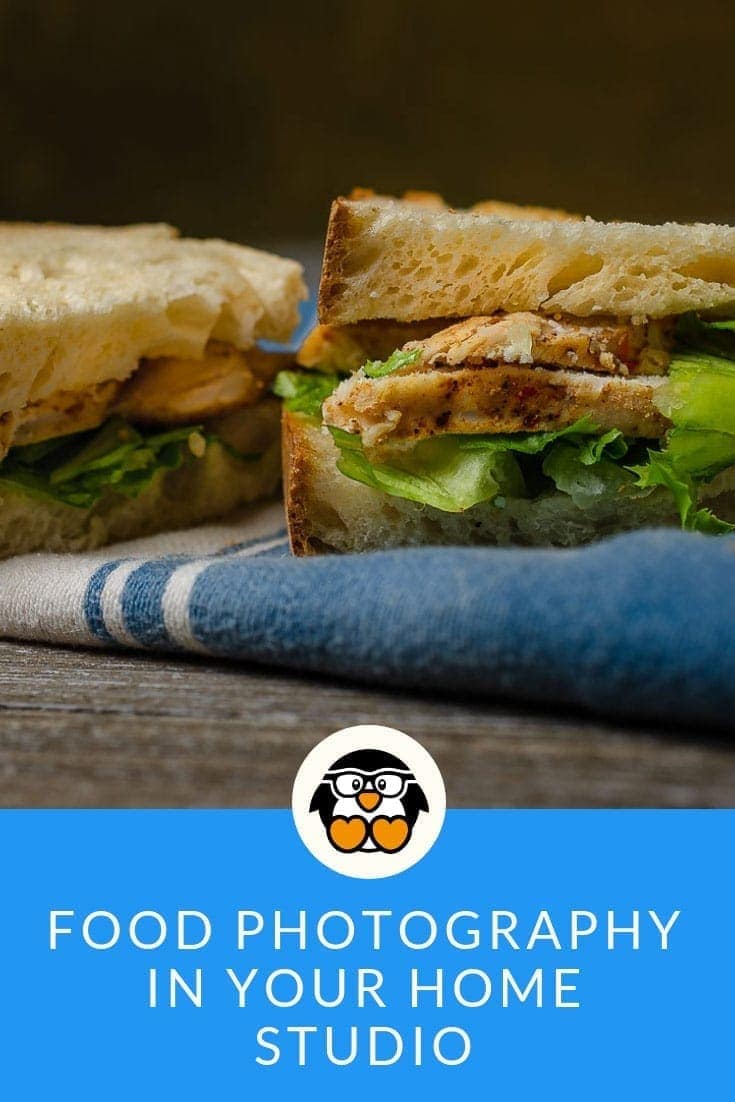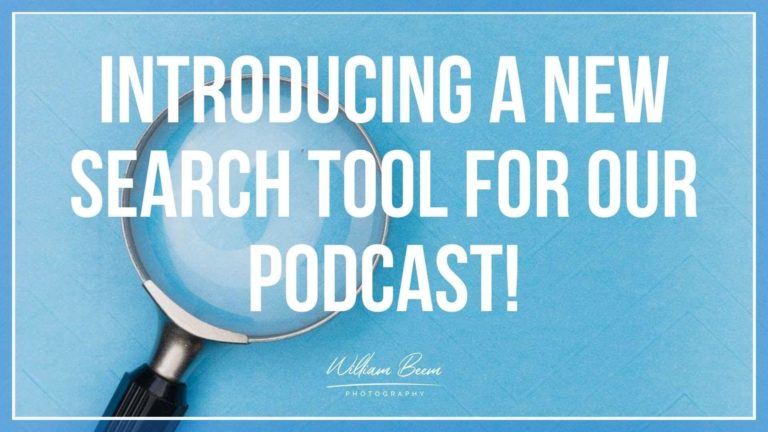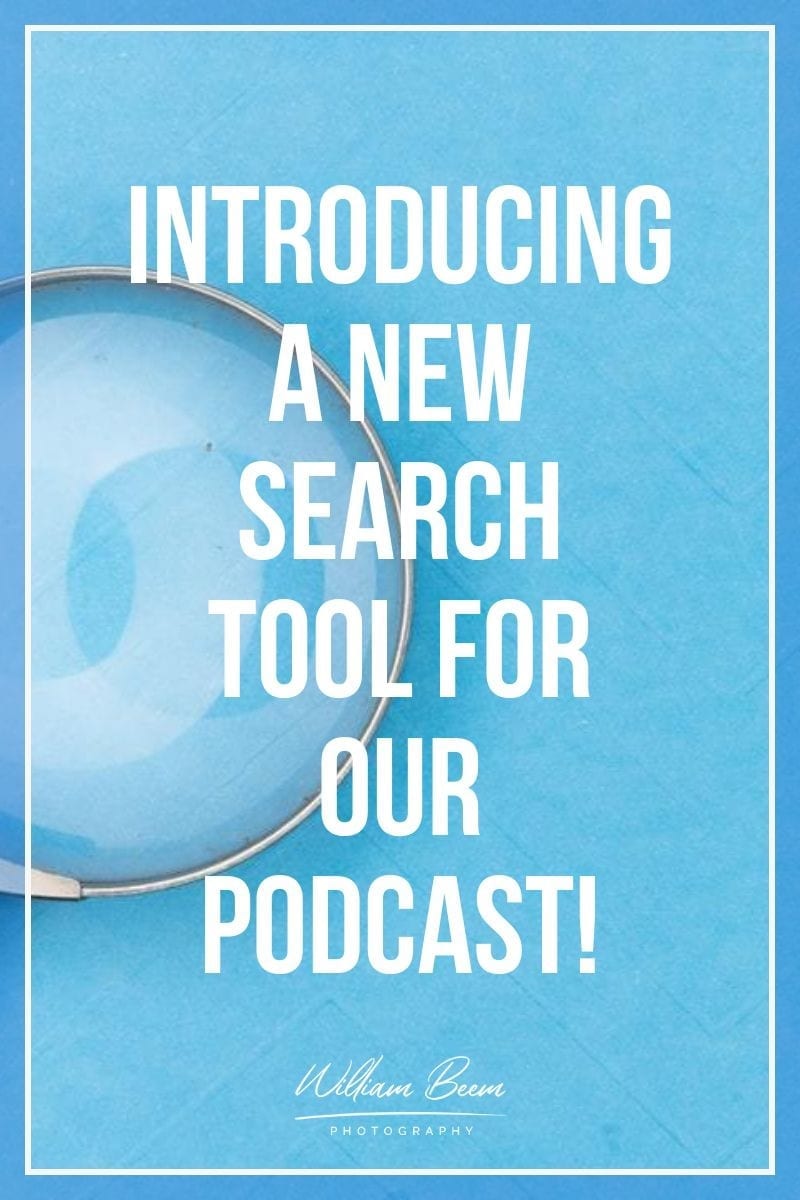Affiliate Disclosure: We earn a commission if you purchase through one of our links at no additional cost to you.
Who doesn’t want to make money with your photography? That’s our topic for today’s photography podcast episode.
This episode came out of an idea because of a new subscriber. He and his wife are interested in making some money with their photography, specifically in the wedding niche.
I referred him to check out Jerry Ghionis, as he has some really great courses and workshops on wedding photography. We met a couple of years ago at WPPI, where I think he’s won more awards than he has shelf-space in his home to display them.
While I’m not an affiliate for Jerry and get nothing in return for referring people to him, I am a customer of his courses and have been for a couple of years since we met. If you’re interested in Portrait or Wedding photography, check out what Jerry has to offer.
Sign up for his email list to get notices for sales and discounts on his courses, also.
Different Ways to Make Money with Your Photography
Be sure to check out the podcasts for examples of how I’ve made money from some of these methods, and why I didn’t accept some offers for paid photography work.
You May NOT Want to Turn Your Hobby Into Work
Turning something you enjoy into a career may not be the best choice for some people. If photography is your escape from stress of daily life, turning it into a career may be a mistake.
Starting a photography business includes much more than photography. You have to understand how to get clients, keep them happy and then get more clients. Also, you need to manage a business financially and legally.
Most of your time in a photography business won’t have anything to do with photography, at least at the start. Unless you’re extremely well funded, you’re going to be the office manager, studio manager, marketing manager and your own photo assistant.
Once you have enough income driving in on a regular basis, then you can hire people to manage the office, the finances and the studio. Of course, that means you’re working to support these people rather than raking in the cash for yourself. All assuming that you just want to be a contract photographer.
Business is often stressful. If you turn to photography to get away from your stress, then creating a business based upon photography may not be the best move for you.
That said, I am much happier now in my own business than I was in my corporate IT Security life. It’s more work, but it’s MY work.
Time Stamps
I got a nice email from a gentleman who subscribed to our email list and he was happy and excited. He'd started up with photography. He got a new camera. He and his wife were both interested in it. And one of the things he's looking forward to, is making some money from his photography. And I thought, you know what? That's what we're going to talk about today on I Like Your Picture. I'm William Beem.
Welcome to I Like Your Picture. The show that helps you improve your photography with visual storytelling. What is visual storytelling? It's a method of approaching your photography with a knowledge of who you're trying to serve with your photos and what emotion you want to make them feel. We encourage you to concentrate on your subject, light and background to create a photo. Your audience loves.
I'm glad you found us. Hi, my name is William Beem and my name is Lee Beem. And we're here to talk to you today about, should you make money from your photography? A couple of things you want to think about is like how much money can you make? We're going to go over some of the different ways that you can make money.
And Lee's going to talk a little bit about why you may not want to turn your hobby into a business. Let's get started with the story I've mentioned. The gentleman was writing to me and he's thinking about, he wants to get into wedding photography. He's just gotten his camera. I referred him to Jerry Ghionis. I said, go sign up on Jerry's site.
Jerry is an astounding wedding photographer. If you've ever been to WPPI the wedding portraits, something or other international, I don't know. Wedding and portrait photography international. I think it stands for. It is an event filled with people who take glorious photos of people, both in weddings and in portraiture. Jerry has won more awards of that than I think anybody else around.
And he does courses and teaches people how to do wedding and portrait photography. So I said, if you want to do weddings, check out Jerry there. I'm sure there's a lot of other people out there to do it too. But I, I know of Jerry and I can recommend him. That got me to thinking, I was talking with Lee and I said,
this guy's just got his camera. And he wants to go do wedding photography. And Lee said, great! He's got a goal. He can work towards something. I thought of it that way. And I thought, you know what? That is a good thing. You may not be ready to go do weddings as soon as you get the first DSLR in your hand or first mirrorless in your hand.
But my other advice to the gentleman was go find a wedding photographer in your area and see if you can become an assistant or a second shooter, kind of learn the ropes as you're getting paid for it. And I thought that's a goal. So the idea is, can you make money with your photography? Absolutely. How much money can you make? You know,
that's where I come back and look at different extremes. I don't know exactly how much money some of the big names in photography are making. But I look at Peter McKinnon on YouTube, he's a photographer and videographer. He's doing brand deals. He's doing his YouTube videos. He's showing his work. This guy is probably pulling down some good change just because he's good at photography.
And yet I can go on Facebook groups and I see people racing to the bottom to charge the lowest rate they can when someone says I need a photographer. Yeah, I know. But that's something that's always been and probably will always be. Is photography profitable? Not, that's not the same as revenue. Yeah. You can make money with photography. Can you be profitable?
And that comes down to... we'll talk about this more later, why you may not want to turn your hobby into a business, but really what it comes down to is running a photography business is not the same thing as being a photographer. That's very true. Let me go over a few of the ways that you can make money with photography. One of the most common ways that people like to do this is with weddings because people are always getting married.
There is a continuing market. And if you're smart and you can get in with a family, you can do a series of different photo sessions with them. You can do the engagement shoot. You can do. Maybe some of the parties beforehand, you can do the wedding and the event photography there. You've got sales that you can make. You're not selling yourself as a photographer,
but you're selling the results. So like here's the album that I can create. Here are the different prints that you can hang on your wall. You know, all that stuff that can go together. Then later on, if the family has a baby or two babies then you can become a newborn photographer and then you can go into maybe the kid's events,
maybe then when they graduate, you can do senior photos. The whole idea of wedding photography with a family. If you can do a good job for them, you can really get into their whole life cycle. If you're willing to hang around and do that. And then you do that with enough families, you probably have a good opportunity there. I,
I agree. And I mean also when you're doing progressive work for clients as their lives evolve, and this is a good example of it. There are times where somebody wants, you know, it's a 10th wedding anniversary. We'll, let's, you know, we wanted to put something together. We wanted to get an album printed. They may contact you and say,
well, could you go back and select the best of, and put together some, you know, a photo book or some kind of display thing that sort of documents over so many pages or however you want, whatever your product is to tell our story from beginning to now. Another example is real estate. Again, this is a market that is always needing photographs.
People who are going to turn over a house or a commercial office or whatever kind of real estate they have. They need to show it off and they need someone who can go in and take well lit interesting photographs that really show the property in its best light. And you know, who's really, I think, this is going to be a bit controversial, good for real estate photography?
People who love photography, but not really creatively mind. They're just naturally some of us are more creative. Some of us are more logical. And I think people who fight and you know, constantly to try and embrace their creative side and they go, do I really have one? Often those people are better suited to the architectural and real estate type photos. I would be bored to death because I've got a stronger creative side.
There is a need for it. And there isn't a skill required for it. The next thing on the list was like product or commercial photography. We're talking about if you're shooting products for a vendor, or if you have a fashion, you want to do a catalog shoot. Also food photography for restaurants. I did something as a social media event years ago,
and I put some food photos up on Instagram and I got contacted by another large national chain. They said, I loved your photos from that. I would like you to come in and photograph our menu for us. I said, no, because I knew I wasn't capable of doing it at the time. And more than that, I didn't want to do it.
I am not a photographer who wants to have clients and work in that environment. I didn't feel that I was ready for it at the time. And you know what? Some people might've said, yeah, here's an opportunity. Let me go do it and fake it till I make it. That wasn't my approach. But that's, You know what, and if you succeed at that,
that's great. I recommended somebody else. And, and sadly, he did not do a good job. So those folks haven't come back and asked me for anything again, but there are people who really enjoy working in a studio environment or whatever environment they need for product and commercial photography. And, you know, these folks have catering. They bring food in.
Oh yeah. So the idea of working on some product and commercial photography could be very interesting. Again, this is the kind of thing I think that you may want to find somebody who's doing it and see if you can assist first, learn the ropes and then go branch off on your own, if you want to. Actually more important than learning the ropes is assistant.
See if this is really an environment you went to work in because I've done that. Do you remember those old work experience, things that you used to do in high school, where you go off and spend a week? My absolute dream career turned out to be something that I was like never, ever, ever. Not because I didn't like the kind of work I was going to do,
but because I realized this environment was just going to be something. So to me it was toxic. It just, I was never going to fit in there. And I went on to my alternative and I trained for it. And as soon as we started doing some work with companies, as part of the, the degree I, I quit, I was done.
I knew this wasn't for me. So what you see and what your perception is of a certain genre, photography for work is going to be similar to choosing a career. The stuff you see on the surface is just the tip of the iceberg. The real stuff is all hidden beneath. And I think you need to get a feel for, is this the kind of environment I want to work with?
Am I able to communicate and interact and engage with these people? Because you have to have some good communication or, you know, likability skills. You somehow got to be able to interact very well with these people because they need to explain to you what they need from you. And you have to deliver and be able to ask them questions. If there is a communication gap,
even if it's through different personality types or approaches to life, you're going to have a problem. Not because you're not good, but because that just might not be the good place for you. Yup. So that's the idea of assisting is it's not only to learn, but also learn, is this what you want to do? The next item that I've wanted to talk about was event photography.
So to me, wedding is an event, weddings, really a lot of things. It's an event photographer, you're a portrait photographer. You're a still life photographer and you gotta be pleasant and nice and stay out of the way. And you're going to have long days doing it. Event photography could be sports, photography. It could be concert photography. I did concert photography a couple of times.
I mean, I got started and it just really at some courses at Photoshop World, and I really had a good time there. And we had some great instructors there too. Then I did some local concert photography, just basically nightclubs. And I decided it wasn't for me because I don't like picking up all of my stuff, going someplace else for a limited time and having to kind of hold onto it while I'm taking my photos and then pack it up and go home. Event photography,
you're going to be lugging your gear back and forth quite a bit. And it's not to me like real estate where you can, okay. I can set things down over in the corner, I can go to work. Event photography, you carry your load. Yeah. And that's this something, and you're driving around and depends on how far the event is,
how crowded it is getting in, getting out, what releases you may have to sign and are you going to get paid for it? And I think there are people who do this. They love it very much, particularly, you know, folks who do sports photography, they really like the action. They like being on the sidelines. They like getting shots that no one else is going to get,
but it's not for me. Now, the last three that I have on my list are things that I have done and made money out of. One of them is fine art and what is fine art? The definition really is whatever the photographer wants it to be. Yeah. What's happening with this is that I've taken some photographs for myself. I've shared them out.
And then I found commercial art buyers who wanted to buy them. One was an art buyer for corporations in New York and DC. I've had a couple of people with Congress that liked my photos of the Capitol. One wanted to put it on the label for his wine bottles. I have another one where actually the photographs hanging in his office in Congress. And basically these are people who need to buy art.
And you need to understand if you're going to shoot for fine art. Yes, you can do what you want, but if you want to sell it, you also need to understand what people want. If you go into some commercial office buildings and look at the art, there's a couple of things you notice., One, it's usually very large. So you're going to need a high resolution camera. Two, it is either of local interest.
Like I said, with the Capitol and the people who are there or it's abstract. And the art buyer that I was talking to was really looking for things that were abstract and office buildings, hotels. They like abstract art because it fits a color scheme. They don't have a blank wall, but yet it's not demanding your attention to look at it. Also,
it's not putting a message that could promote your alienate any sort of thoughts, views, or types of people. And I think that's, that's smart. Yeah. So, I mean, you can go into a building and you can see a big panographic thing with nothing but colors and circles and they'll pay for that and they'll pay well. All right.
The next one, as I've mentioned is education. And I've kind of gotten into that, doing some courses and doing some blog posts and doing some other videos. So if you're good at your photography and you don't necessarily want to have clients, but you've know enough that you can share, you can make money with education, which leads me to my next point.
If you have Lightroom Classic, and you need to understand how to control the metadata, how to organize your library, I've got a course it's called Where's My Photo. And you, and you can go to William beem.com/courses. And you'll see, Where's My Photo. It is well, I'm biased, but I'm saying it's a really nice course. It is nice.
I thought it was really good. It's not just about keywords or collections. Although that's included in there. There is an awful lot of metadata fields and opportunities inside of Lightroom that most people never use. And the idea is that you can not only go ahead and put your information into these fields. If you know what they are, it makes it easy to search for things and find them,
but you can automate what happens, too. So in other words, if you put it in one photo, it's very easy to share it with a collection of other photos. And I say collection loosely, cause I know there are collections in Lightroom, but the idea is that you can automate things inside of Lightroom Classic to make it really easy, to find your photographs,
organize them. And when you export your photographs, you have that metadata with them. So if you put it up on Flickr or 500 PX, and there's a commercial art buyer looking for photographs, they're going to type in search queries. And if you have the right queries or information in your photo, that's attached, when you export it, they're going to find your photo and potentially buy it.
And I can tell you that's exactly how I got found. I mean, even something as silly as a picture of Han Solo in Carbonite. Sports Illustrated, no, it wasn't Sports Illustrated. ESPN came to me one time and wanted to buy that photograph because they were talking about a basketball player. I think it was James Harding who froze. There was what they were talking about.
You froze during a free throw or something like that. And they wanted to put his face on. We didn't come to a deal because they basically wanted something for nothing, but there are other art buyers that I've talked to. Usually not the big names. The big names don't really pay that well. It's somebody you've never heard of that will come in and offer you a good amount of money,
but they've got to be able to find your photographs. And if you know how to put that information into Lightroom Classic, you can export your photographs and be discovered. And that's what I'll teach inside of. Where's My Photo. So it's very inexpensive, too. It's only $27. I wanted to keep it inexpensive because I think every photographer deserves to understand how to organize their photos.
The next item on the list is YouTube. And as I mentioned, I've been doing some YouTube videos, particularly on post-processing software and specifically a lot of it on Luminar. Some of it on some other tools. There are people who are making a good name for themselves on YouTube. Peter McKinnon, and I mentioned earlier, this guy's got more than a million subscribers.
He's got brand deals. And if you're on YouTube, you can become well-known. And if you're an educator on YouTube, you can also let people know about your information that you have to share as far as courses or whatever else you might be selling. If you're doing affiliate marketing. For example, if you're selling software, people on YouTube are getting noticed.
And I think if you're consistent and you do a good job and you can educate people on YouTube, or you can entertain them on YouTube, that's a way photographers can make money. All right. I promised that Lee would get to talk. I get to speak! Who should not make money with photography Lee? I think that it's anybody who has photography as his or her escape from the stresses demands or anything negative associated with just the day-to-day grind of life.
To me, photography was my way to break away from, you know, whether it's a rough day or whether the dogs had misbehaved, that kid has misbehaved, no matter what it is. Photography, once I got into it was an escape for me. And, and it still is. I mean, sometimes I still come out and go, I it's just been one of those days.
Now they're break off the set and everybody leaves me alone to go do a still life. And I come back and I've been separated from it. To me, as soon as I using the thing that I love and that I use as my relaxation or my escape from anything negative and there's money that comes with it, it's work. And with work comes restrictions. To me,
I've always just had this thing of, I never want to take the thing that I love to do the most for fun and make it become my job because instead of a job becoming fun, I like for me, I, I think that's my fun would just become another job. The way I look at it is this. When you're a photographer as a hobbyist,
you take photographs when you want to. When you're working in a business, you take photographs because you have to, the reason you have to is quite often because somebody else needs something. So they like your vision. They like your style. And then they tell you how to change. The get to call the shots. If they're paying the money, they call the shots.
I think that's the problem that I have. Like being from more creative side, I look at it and I think if I'm doing this, and this is my creative thing, don't tell me what to do. Something else to keep in mind is being a photographer and being in a photography business are not the same thing. When you're in business, you still have to find ways to earn money.
So you have to find clients. So you have to find opportunities to sell the results of your work or earn money from the results of your work. You have to market. You have to deal with other people. There's a stereotype of an artist, you know, is like, just doesn't listen to anybody and does whatever he or she wants. Wouldn't that be bliss?
Those people only make money from their art after they're dead. This is true. There's, there's a reason. There's a phrase, starving artist. If you want to be a successful photographer, you need to do business things. And not everybody is a business person. I have been in business for a while as a hobby. I decided, okay, last year I made the jump.
I am full time into my business. I got to tell you, I am doing a lot of things that I never expected that I would need to do. I mean, even, you know, finances. You need to be able to do your finances. You need to say how much money is coming in? How much money do I have in savings until I start making enough money that I can work off of my business here?
Who am I going to collaborate with? How am I going to get word out that, yes, I'm a photographer? How do I make sure that I make a customer happy so they come back again? All of those things are about business. So making money with your photography, isn't necessarily saying, Hey, I took this picture. World, please come look at it and give me money.
It doesn't necessarily happen that way. It happened a couple of times for me with a corporate art buyers, but that was happenstance. If you really want to work that market, you've got to go make some contacts. Yep. I've had some product stuff where it was just like a mutual trade. I don't think I've ever done sold photos for money. This works for me.
That works for you. Always then, it was something like a case of, they liked what I had. You know, how I'd present their product. It was like, well, I never offered to take any photos. It was just, you can use this one and I get something in exchange. And I'm not saying that it's a negative experience. It doesn't have to be.
There are wedding photographers. Then they will network and collaborate with, you know, the person who does the catering, the people who do the florist, who bring the flowers in and designers and hair and makeup people. And all these people will get together. And sometimes they'll even do their own shoots. So each of them has photograph that they can show their potential clients and you can enjoy this.
Or you can see it as a burden. And that's really something you have to decide for yourself. Is the burden of doing business something you enjoy? You don't mind doing, or is this something that's going to crush you for your photography? And if you're also trying to do this while you're holding down another job, it becomes that much more problematic because your other job is probably your primary income and it's going to demand your attention.
Those are things to keep in mind before you say I'm going to be a photographer. You can be a great photographer and allows the business person in fail. Keep in mind all the things that go into business and marketing, and finances go along with making money from your photography. If you want to do that as a full-time business. And since I don't want to end on a sad thought like that,
I can tell you that I am much happier since I left my corporate job and I'm doing my own thing. Now, He is MUCH happier. Lee told me that I used to have this sigh that I would make when I was working from home for my old job. It was the corporate sigh. And she says, you know, you've never done that again.
Since you quit. I used to constantly hear it. And it has a certain pitch in tone that's different to any other sigh. I don't want to make it sound like a bad thing. This is the choice I made that I wanted to go in business. I'm enjoying it. You know, there is a bit of a struggle to get up to speed,
but I think in the long run, it's worth it. If this is where your passion lies. Thank you so much for joining us on I Like Your Picture. This was episode 265. So our show notes will be available at williambeem.com slash episode 265. If you're thinking about making money from your photography, please let us know in the comments. Is there something you're doing as a side hustle?
What are you doing? And do you want to make the jump to do this full time? I tell you there are pros and cons. I'll be happy to discuss it with you. So let us know. And until then, we'll see you in the next episode.

